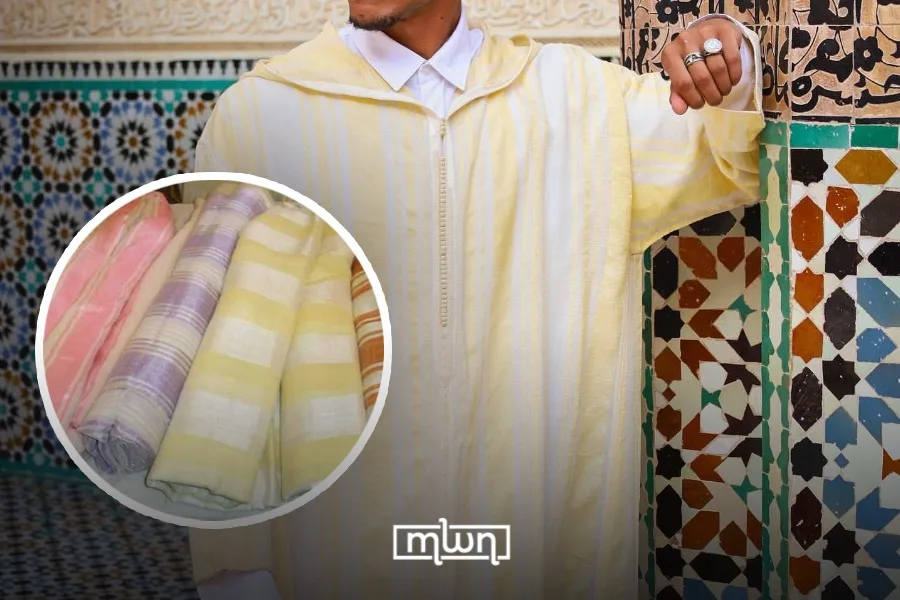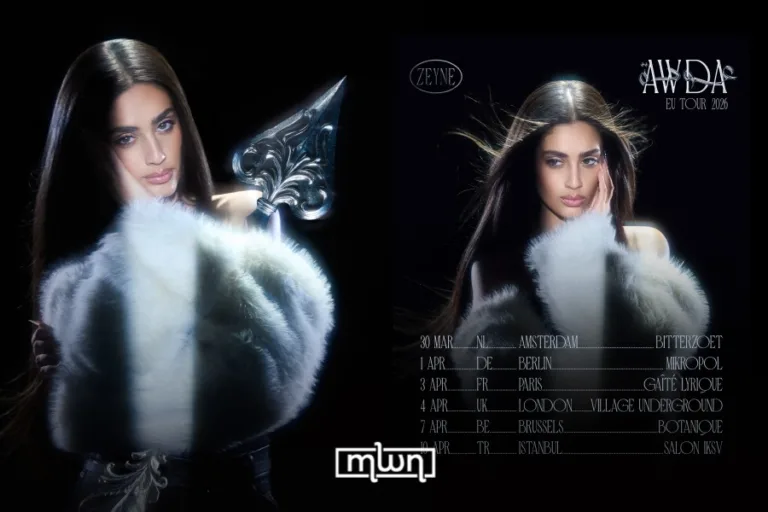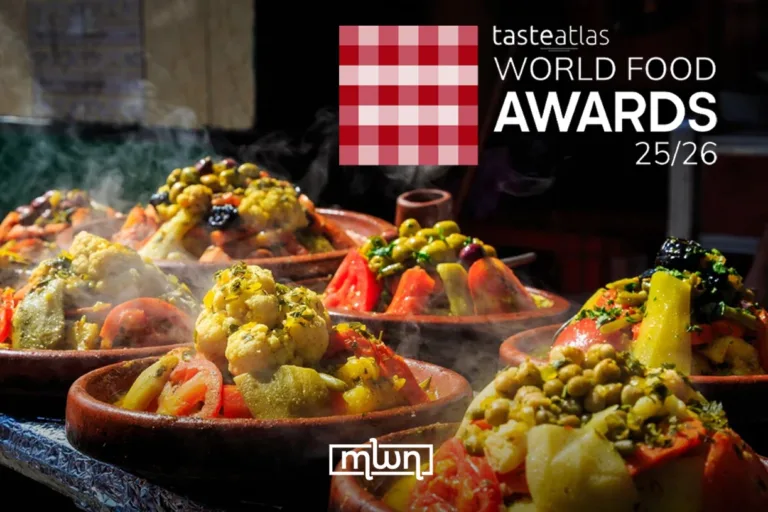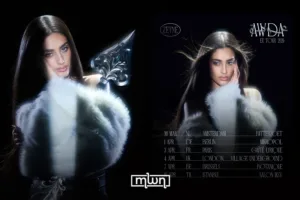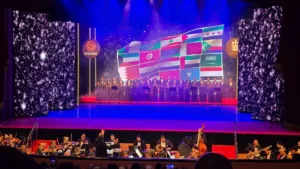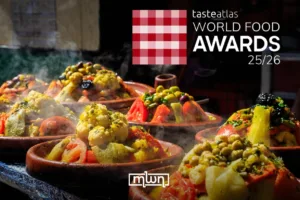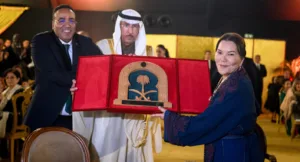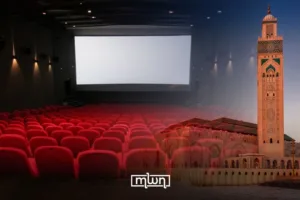In the highlands of Azilal, a traditional robe has outlasted trends to become a symbol of Moroccan elegance.
Fez– The Bzou jellaba is more than just clothing, it’s a living piece of Moroccan history. Worn by generations and admired far beyond the Atlas Mountains, this traditional robe embodies both the artistry of Moroccan craftsmanship and the enduring appeal of timeless style.
Named after the region of Bzou in Azilal province, the jellaba carries the legacy of tribes who mastered spinning wool and cotton long before fast fashion was even imagined.
In its earliest form, the garment was entirely handmade from pure wool, designed to shield mountain dwellers from the bitter cold of the Middle Atlas.
Its loose cut ensured comfort, while its dense weave provided protection against unpredictable weather.
What makes the Bzou jellaba truly special is the way it blends practicality with artistry. Its fabric, wool or cotton of exceptional quality, is painstakingly woven on traditional handlooms.
The detailed embroidery and fine stitching give every piece a distinctive character. Nothing about its production is rushed; a single jellaba can take days, sometimes weeks, to complete, reflecting the patience and precision passed down through generations of artisans.
This slow, deliberate craftsmanship gives the Bzou jellaba a unique status in Moroccan culture.
Far from being a mere garment, it has become a symbol of elegance, respectability, and fidelity to tradition.
Whether worn at family celebrations, religious gatherings, or simply on a cold morning, the jellaba carries with it a quiet dignity.
It’s no surprise that entire families in Bzou dedicate themselves to preserving this heritage, teaching children the techniques to ensure the craft does not disappear.
Yet tradition has not meant stagnation. The Bzou jellaba has gracefully evolved, adapting to modern tastes while holding on to its roots.
Today, artisans and designers experiment with lighter fabrics for warm weather, introduce new color palettes, and even integrate subtle contemporary cuts.
The result is a garment that feels both historic and fresh, a robe fit for festive occasions, yet just as comfortable for everyday wear.
This adaptability has propelled the Bzou jellaba far beyond Morocco’s borders. International designers now showcase it on runways, and global buyers are drawn to its authenticity and exquisite detail.
In a world dominated by mass-produced fashion, the jellaba’s handcrafted nature offers something rare: a personal connection to culture, to craft, and to the human hands that made it.
The making of a Bzou jellaba is as fascinating as the garment itself. It begins with raw wool or cotton spun into thread, often dyed in rich natural tones.
On a wooden loom, the threads are carefully woven into cloth, guided entirely by human touch rather than automated machines.
The cutting and sewing are done with precision to ensure the robe’s signature loose fit, and the embroidery, done with colored silk or cotton threads, adds the final flourish. Each detail, from the seams to the hood, tells a story of skill and pride.
Despite the effort and time required, artisans remain committed to this heritage. The jellaba’s cultural value extends beyond fashion; it represents the soul of a community and its enduring link to Morocco’s broader identity.
In Bzou, to wear one is to carry the legacy of ancestors who spun, wove, and stitched not just fabric, but memory.
What’s remarkable is how this traditional robe has gained a modern global following without losing its essence.
Young Moroccans wear updated designs at weddings and Eid celebrations, while tourists and fashion enthusiasts seek authentic pieces as symbols of craftsmanship.
The Bzou jellaba stands as proof that heritage can thrive, not by resisting change, but by embracing it thoughtfully.
At its heart, this garment remains what it has always been: a fusion of beauty, function, and cultural pride.
It offers warmth in the mountains, elegance in city streets, and an unmistakable Moroccan identity wherever it travels.
The Bzou jellaba is not just an outfit. It’s a testament to patience, artistry, and continuity, a reminder that true style never fades, it simply adapts.
And thanks to the artisans who keep the looms running, its story is still being written, thread by thread.

